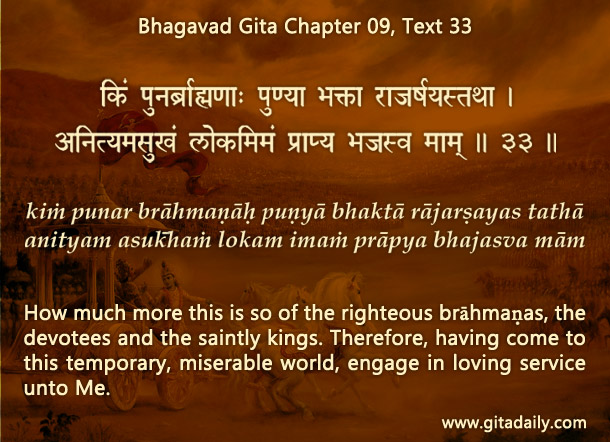When problems assault us unexpectedly, we often feel indignant that life has handed us a raw deal. We also become haunted by the fear that people may see the reversal – be it financial or familial or whatever else – as evidence that we are inferior to others. These dual feelings of injustice and inferiority generate an overwhelming emotional momentum. We find ourselves propelled into the doleful imagination that we alone are suffering, while others are having a good time.
Gita wisdom freezes our gloomily hyperactive imagination by one sweeping stroke of insight: misery is democratic or equal to all. The Bhagavad-gita (09.33) declares that misery is an inherent, inescapable feature of the material world. So everybody living here has to suffer; the difference between us and others is only a matter of when and how, of the time and the form of the onslaught of misery.
Can we realize this democracy of misery for ourselves? Surely; we just need to use our experience and intelligence to look beyond the surface. Careful contemplation will show us that those people who we imagined were happy – our beloved movie star who makes millions swoon or our dreaded competitor who gets all the right hunches at the right time or whoever else – are all, in their own ways, suffering.
The moment when we discover this democratic nature of suffering is liberating. The gnawing feelings of injustice and inferiority disappear; we experience an empowering inner freedom. The resulting energy enables us to deal with life’s reversals in the best possible way materially. More importantly, we gain the conviction to redirect our energy from the fruitless quest for a better place in this world to the fruitful quest for the best place beyond this world: the eternal abode of Krishna.


Leave A Comment